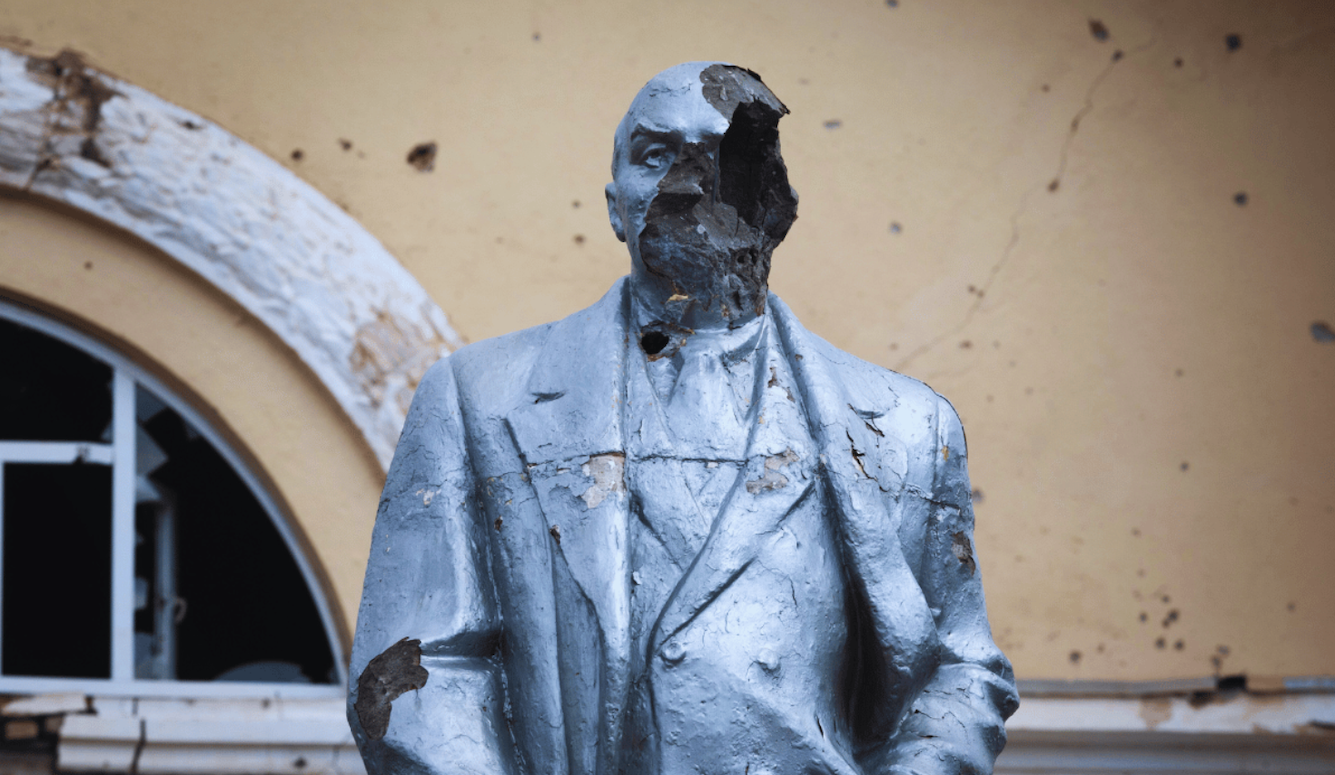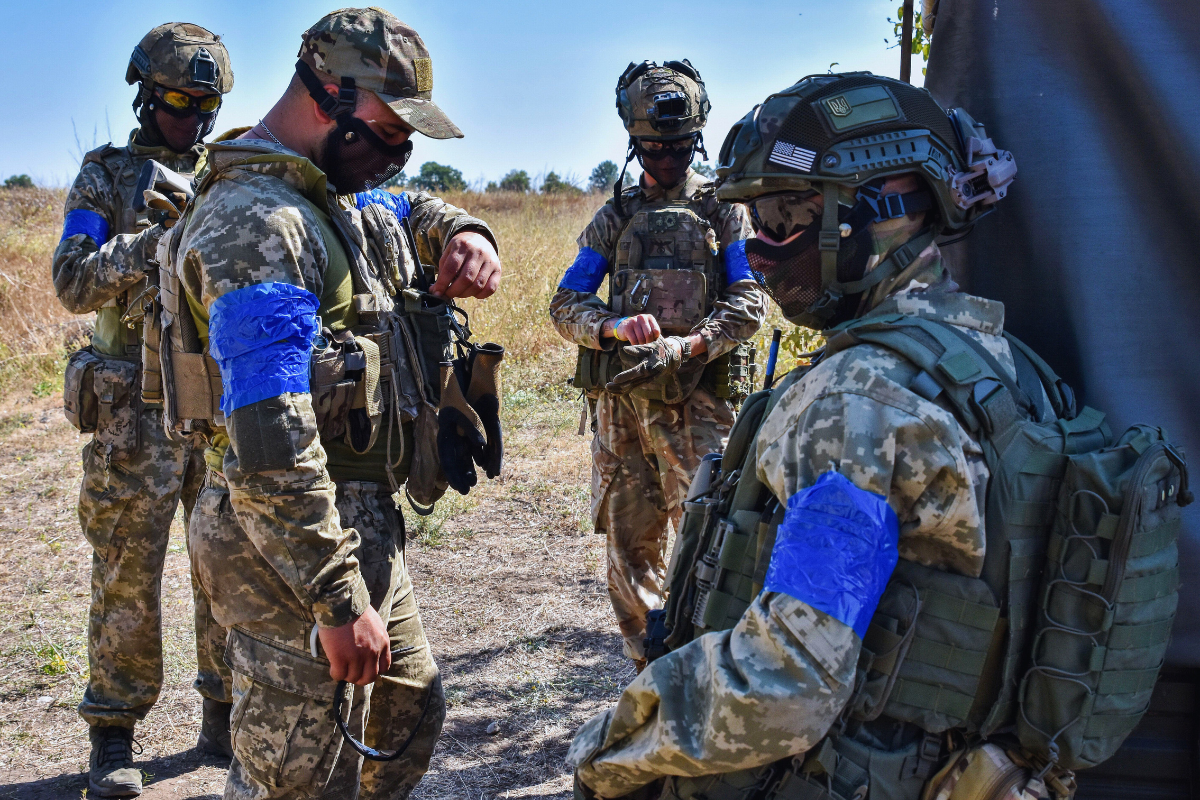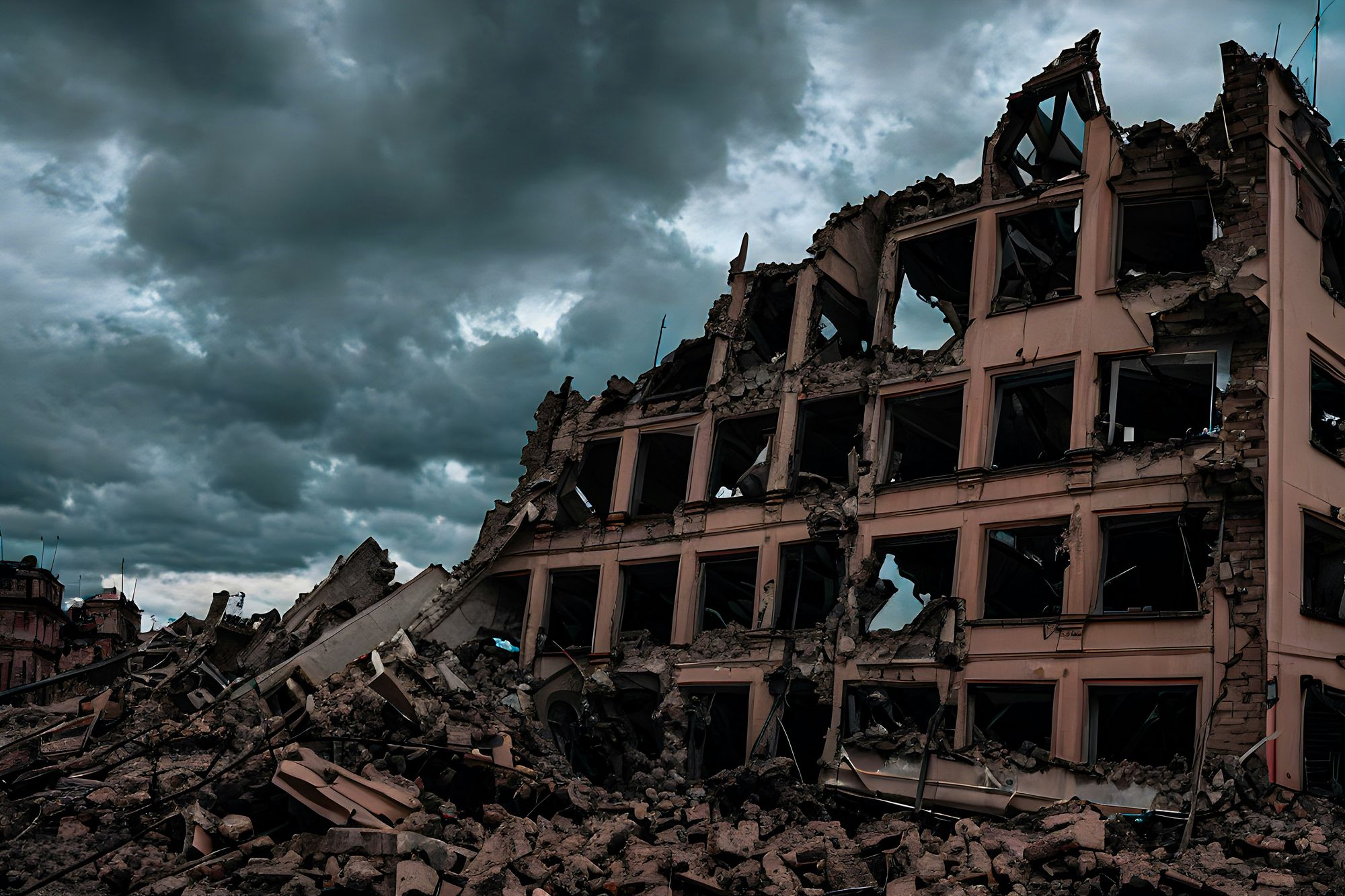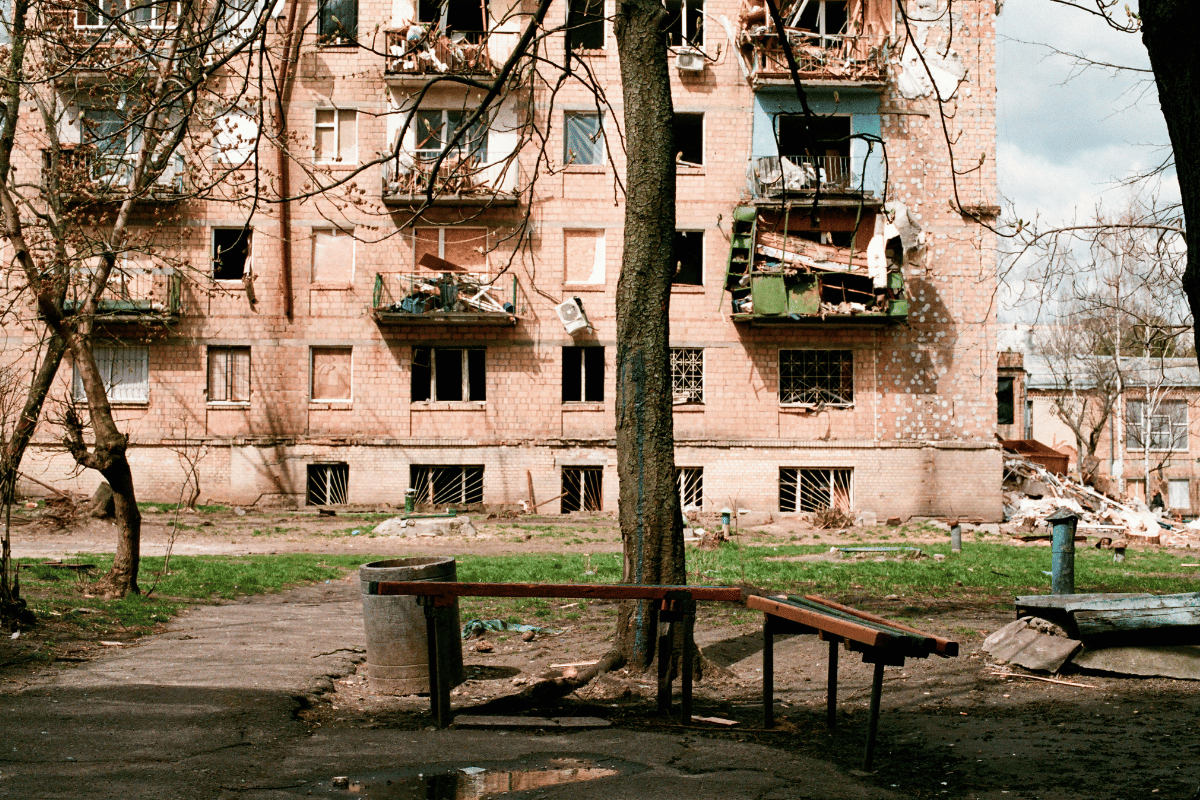Politics
A New Phase in the War
The notion that Ukraine is a hopeless cause has been dramatically refuted by the audacious incursion into the Kursk Oblast.

Know when to fight and when not to fight: avoid what is strong and strike at what is weak.
~Sun Tzu, The Art of War
By following ancient martial wisdom and sweeping across the Russian frontier, Ukrainian forces have seized the battlefield initiative. After months of gruelling trench warfare, on 6 August, Ukraine launched a lightning invasion of Russia’s Kursk Oblast that may yet deliver a major strategic reversal for Russian forces and alter the course of the war. It should be sustained for as long as possible, and supported by Kyiv’s Western patrons.
The Ukrainian offensive into the Russian Federation has been the boldest move of the war to date. By all accounts, it took the enemy entirely by surprise. At the time of this writing, it has resulted in the capture of 74 settlements and the occupation of some 390 square miles of sovereign Russian territory, scoring an impressive propaganda coup against Moscow, which has euphemised its war of conquest as a limited “special military operation.” It has also forced the Russian state to evacuate nearly 200,000 civilians from the Kursk and Belgorod regions, interrupting Russian operations and interdicting supply lines.
Updated map from @Deepstate_UA showing Russian advances on the Pokrovsk front and expanded assessed Ukrainian control of territory in Kursk oblast.https://t.co/EtqCQC6zlbhttps://t.co/5NrHpLo0E4 https://t.co/tCBUNAGRL2 pic.twitter.com/3GmAMXCGBF
— Rob Lee (@RALee85) August 21, 2024
An important message has also been delivered to Ukraine’s allies. Since the outbreak of full-scale war in February 2022, Ukraine has fought under strict limits imposed by Washington—both the quantity and quality of weaponry at its disposal has been meticulously scrutinised by an administration gripped by fears of escalation. Long-range attacks into Russian territory have been prohibited. The intransigence of the Biden White House, which has depleted Ukrainian air defences and led to shell shortages on the front lines, has kept Ukraine on the back foot throughout this conflict. This approach was always unsustainable, particularly given the vast power discrepancy that Moscow enjoys. In other words, it has heightened the hideous costs of war while empowering hardliners in the Kremlin to maintain maximum military pressure.
The prolonged reliance on this approach suddenly looks more imprudent than ever. Until last week, the Ukrainians have granted their American patrons a degree of leverage and a presumption of authority over Ukrainian conduct. For more than two years, the Biden administration has enjoyed the widest possible latitude in defining the shape and course of this war, doggedly pursuing a muddled and self-evidently futile policy. The Ukrainians have paid a terrible price, culminating in the loss of territory during Russia’s Kharkiv offensive, but they have now ended their deference to Washington. This may not allay scepticism about the wisdom of their unilateral manoeuvre but it could ensure a degree of respect nonetheless.

The remarkable operational secrecy enveloping the Kursk mission ensured that Washington was as much in the dark as Moscow. Having learned bitter lessons from last summer’s much-touted and botched counter-offensive, Ukraine’s leaders and commanders have taken inspiration from Israel’s approach to warfare. The Jewish state has a long history of taking risky military action without kowtowing to the political and diplomatic considerations in Washington—a pattern it is following today in its multi-front campaign against Iran and its surrogate forces across the Middle East.
Having learned bitter lessons from last summer’s much-touted and botched counter-offensive, Ukraine’s leaders and commanders have taken inspiration from Israel’s approach to warfare.
Ukraine’s gambit is the result of prolonged frustration among the Ukrainian high command that they have been barred from prosecuting the war à outrance. President Volodymyr Zelensky has publicly expressed his dismay with the constraints imposed by the Biden administration, claiming that “our partners are afraid of Russia losing the war.” As Vladislav Davidzon has reported, Ukraine’s high command has recognised that occasionally it is better to ask for forgiveness than for permission. As a senior member of Zelensky’s inner circle put it: “The lesson here is that you should just behave in the way that the Americans do themselves. You should do what the Americans themselves do. Not what they tell you to do.”
Although the State Department’s spokespeople may feign disapproval, who in America can possibly quibble with that logic? Not long ago, Ukraine was said to be the Kremlin’s plaything, fated to be incorporated into a new Russian empire. That same country has not only withstood a protracted and ferocious onslaught from its significantly larger neighbour, but it has also executed the first invasion of Russia since the Second World War. The sheer pluck recalls a show of defiance from the past. Weeks after Japan’s attack on Pearl Harbor, Winston Churchill spoke to the Canadian Parliament, reminding them of how the French generals predicted that “in three weeks England will have her neck wrung like a chicken.” “Some chicken!” Churchill exclaimed. “Some neck!”
So long as the Ukrainian incursion does not turn into a pyrrhic victory—the risk of large numbers of Ukrainian soldiers and munitions being captured or eliminated hardly needs spelling out—it will undermine the popular narrative that Ukraine’s cause is doomed, and that the only path to a peaceful settlement is for Ukraine to accede to Russian demands. Even if the imbalance of economic and military power between Russia and Ukraine has been and continues to be enormous, it does not follow that Ukraine must sue for peace. In war, as Napoleon said, the morale is to the materiel as three to one.

President Biden will leave office with a decidedly mixed record in this bloody conflict. On one hand, his administration has demonstrated real political courage in the provision of military assistance to Ukraine. This decisive leadership has been an easy political target for populists and demagogues like those on the Republican presidential ticket. But it has unquestionably helped to save Ukraine, preserving its freedom and independence in the shadow of great-power aggression. The entire security order of Europe was at risk, and the timely application of American strength has for the most part ensured that it remains whole and free.
On the other hand, the Biden administration failed to deter the invasion in the first place, and in those critical months and weeks before the war, it signalled that Kyiv would probably fall. This feeble combination enhanced Putin’s willingness to make his fateful gamble. Even after Russia’s initial assault failed to achieve its objectives and Zelensky rallied his nation to a heroic defence, the White House has obstinately refused to equip the Ukrainians with sufficient amounts of lethal aid required to actually win the war. Operating by a logic intelligible only to its apologists, it has placed absurd restrictions on Kyiv, permitting Russia to strike Ukraine with impunity but preventing Ukraine from responding in kind. This approach has empowered Ukraine to hold the Russians at bay but not to defeat them.
That timidity should end at once. Given the new facts on the ground, longstanding proposals to enhance Ukrainian military might should be put into action without further delay. The US has already dispatched its latest aid package to Kyiv in the aftermath of the incursion as previously scheduled. In his waning weeks, Biden ought to authorise the use of US-made war planes and ballistic missiles to increase the destruction of Russian armour and its oil-refining sites.

The ravaged Ukrainian economy also needs more help than it has received. Its war economy could be strengthened by securing greater foreign investment and long-term funding. The latter could be financed in large part by Russia’s frozen assets. Although certain European nations have begun to redeploy these funds to Ukraine, the measure remains controversial in some quarters. But the policy passes legal muster and is eminently justified on moral grounds. The US Congress has already authorised the executive branch to seize the immobilised Russian sovereign assets and place them in an international trust fund.
For more than two years, the government and people of Ukraine have been fighting tenaciously for their land and liberty. This adamant fortitude has plainly disappointed the party of Donald Trump and the clique of John Mearsheimer, but the chorus of detractors and defeatists is by no means confined to the Republican coalition and the academy. To the dismay of the Ukrainian regime, and to the evident detriment of its cause, those insisting that an amputated and subjugated Ukraine is a fait accompli have long enjoyed a respectful hearing in the Oval Office.
Ukrainian Armed Forces seized Apanasovka in Russia’s Kursk Oblast pic.twitter.com/dab4NKOTfE
— Giorgi Revishvili (@revishvilig) August 18, 2024
In the context of the impending presidential election, the impact of the footage of Ukrainian forces storming Russian towns, capturing Russian soldiers, and destroying Russian bridges can hardly be exaggerated. The notion that Ukraine is a hopeless cause has been dramatically refuted by events. Ukraine’s success in conceiving and launching and sustaining its operation in Russia has indicated to a watching world that it will assume final responsibility for its defence. It has also revealed that its great foe is less to be feared than fought. Russia, scrambling to reclaim its territory, will now find it much harder to restore its cherished reputation—at home and abroad—as a serious world power. Ukraine’s initiative has also exposed the hollowness of the Kremlin’s nuclear sabre-rattling.
Ukraine has a demonstrated capacity to act, if necessary alone, with conspicuous audacity to repel the enemy. After many forlorn months in this war of attrition, Ukraine’s leaders decided they could no longer afford to prosecute it with strict adherence to the rules and regulations devised by distant managers—no matter how well-intentioned—who don’t have much credibility on great questions of strategy and statecraft. Ukraine’s leaders have begun a new phase of the war, fighting in a way they regard as necessary to protect their country. They are right.






